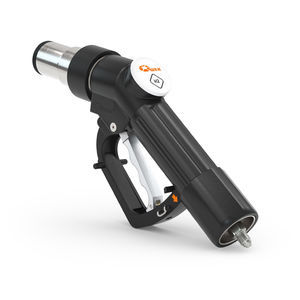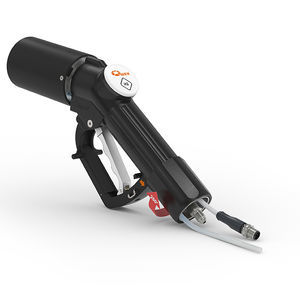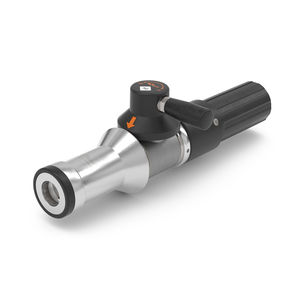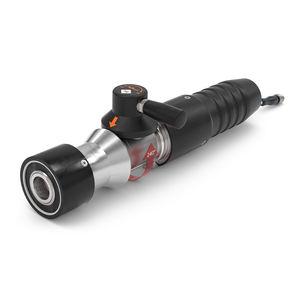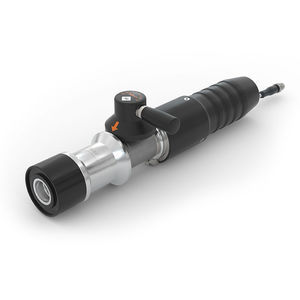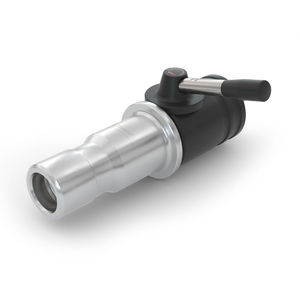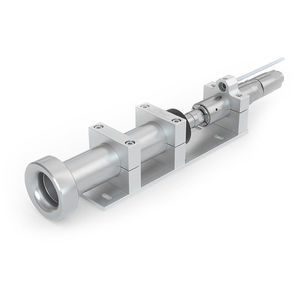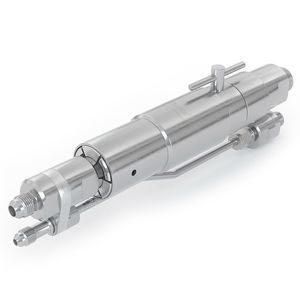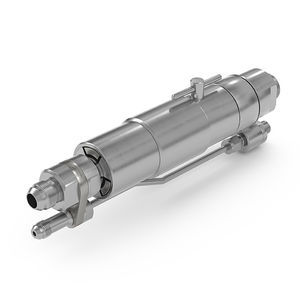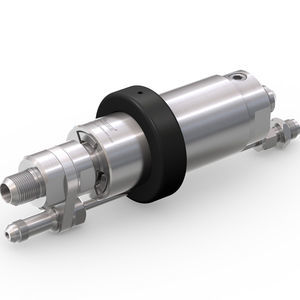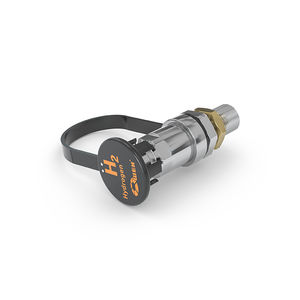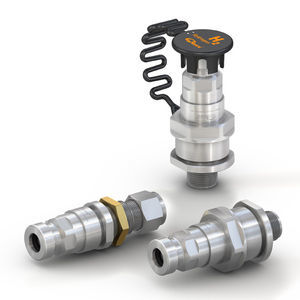
- Hydraulics - Pneumatics
- Valve
- Ball check valve
- WEH GmbH Verbindungstechnik
Hydrogen check valve TVR1 H2 70 MPaballmale-malefor fueling stations
Add to favorites
Compare this product
Characteristics
- Type
- ball
- Body
- male-male
- Applications
- for hydrogen, for fueling stations, for car
- Material
- stainless steel
- DN
4 mm
(0.157 in)- Pressure
Max.: 87.5 MPa
Min.: 0 MPa
70 MPa
- Temperature
Max.: 85 °C
(185 °F)Min.: -40 °C
(-40 °F)
Description
With the TVR1 H2 70 MPa WEH offers a high performance check valve for use with hydrogen cars or fueling stations of the latest generation.
The check valve system is designed to minimize the effect of dirt particles on the sealing components within the unit.
The WEH® TVR1 H2 70 MPa Check Valve is constructed of corrosion-resistant stainless steel achieving a very durable unit due to its robust internal structure.
Catalogs
No catalogs are available for this product.
See all of WEH GmbH Verbindungstechnik‘s catalogsExhibitions
Meet this supplier at the following exhibition(s):


Other WEH GmbH Verbindungstechnik products
Refueling Systems Hydrogen
Related Searches
- Valve
- Hand valve
- Stainless steel valve
- Ball valve
- Pneumatic valve
- Threaded valve
- Stop valve
- WEH flap valve
- WEH check valve
- Piston actuator valve
- Valve for industrial applications
- WEH metal check valve
- Radial diaphragm valve
- Hydraulic valve
- Compact valve
- WEH fluid check valve
- Relief valve
- WEH stainless steel check valve
- High-pressure valve
- WEH threaded check valve
*Prices are pre-tax. They exclude delivery charges and customs duties and do not include additional charges for installation or activation options. Prices are indicative only and may vary by country, with changes to the cost of raw materials and exchange rates.




